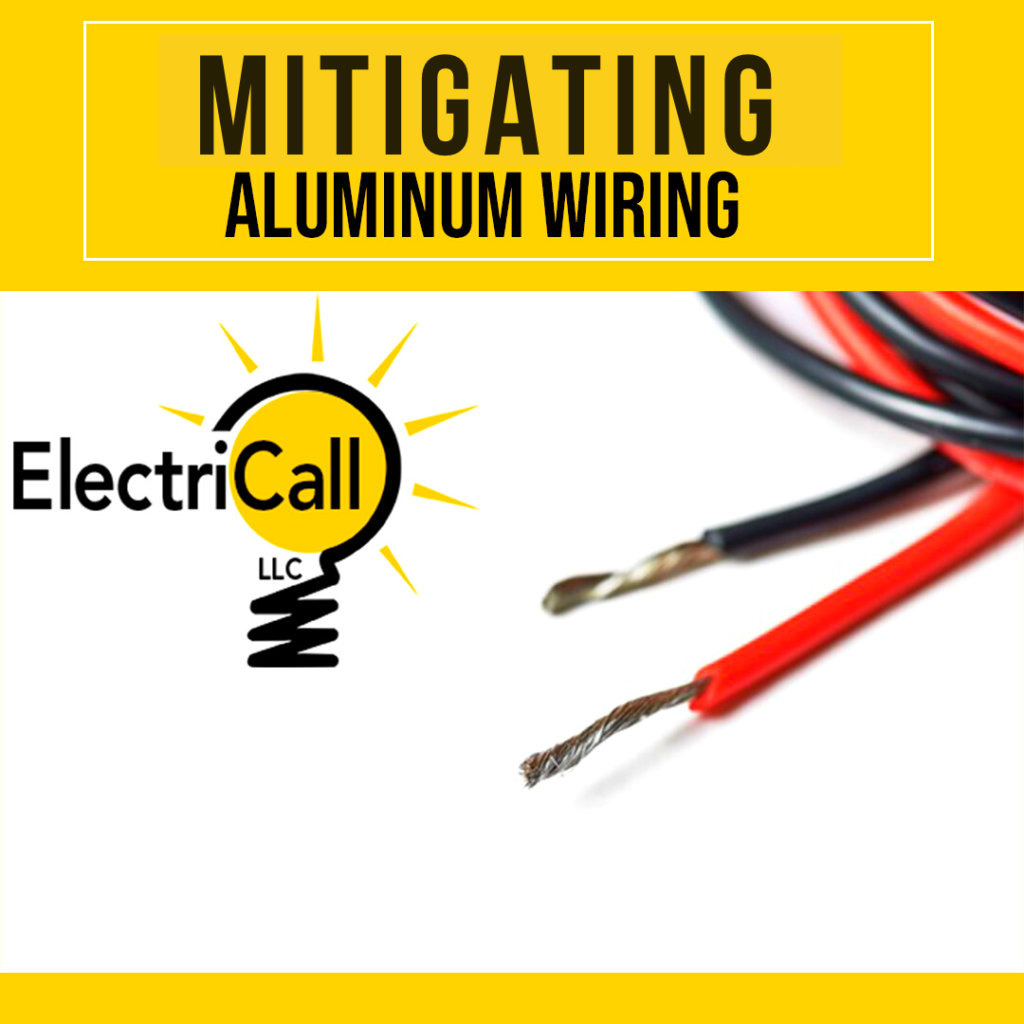
Aluminum wiring has been one of the most commonly used materials in both commercial and residential structures. However, the use of single-strand aluminum can become a costly issue when ignored or not immediately dealt with.
Sadly, some people downplay the potential hazards that could occur from using aluminum wiring in their houses. Because it is not convenient for them, they would rather ignore the threat instead of deal with it as soon as possible.
The Problem With Aluminum Wiring In A House
During the 1970s, single-strand aluminum wiring was used as an alternative to copper wiring. The price of copper wiring at the time skyrocketed, and because the aluminum wiring cost is cheaper, it became more attractive to the consumers. Unfortunately, several problems came with it.
- Aluminum is soft and light
Although this characteristic has advantages such as it cuts the manufacturing cost, produces less noise, and helps reduce energy consumption, it also has some disadvantages.
The first disadvantage of aluminum wiring is that it is so much softer and very light compared to copper wiring. That means, there is a huge chance that it will cause hazards since it can easily become defective and overheat.
- Aluminum is less ductile
For the most part, houses with aluminum wiring is not a big problem. But threats of hazards are likely to occur due to incorrect use or installation of this material.
The reason for that is because aluminum wiring can only withstand less stretching and bending. In other words, it will easily break or get deformed. Combine its low ductility and improper installation and you will surely have electrical wires slowly rupturing its insulation.
- Aluminum expands easily
Another disadvantage of aluminum is that it is not particularly strong, unlike other metals. When electricity passes through the aluminum wiring, it will expand and contract. As a result, it may become loose or spark and start a fire.
With all these disadvantages, the question now is: is aluminum wiring safe?
If you are planning on selling or buying a house that is using aluminum wiring, it is a good idea to get it inspected right away. Although this type of wiring is expected to last for up to 80 years, or even if the home has not experienced any indication of wiring issues, doing preventive measures will save you from any risks.
What is also worth noting is the age or time frame before rewiring your property. The recommended interval is every 30 years. Updating the circuit breaker, cables, and outlets to a newer or modern model will help prolong the lifespan of your property.
So, if your house uses aluminum wiring, you definitely need to get it looked at by a home inspector or a seasoned Denver electrician. Some important signs that will tell whether your aluminum wiring is about to cause serious problems to include:
- Flickering lights that are not caused by an external source.
- Burt smell or a strange odor coming from the outlets and switches
- Warm-to-touch outlets and switches
- Light bulbs burn out after several days of use
- TV goes static whenever turned on or sparks when plugged
- Breaker frequently trips
- Sparks whenever you plug something in the outlet
What To Do With The Aluminum Wiring
As a home buyer, you might also have this question: Is aluminum wiring a deal-breaker? Well, aluminum in itself is not illegal or a serious threat. Several factors make it dangerous.
Contacting a trusted Denver electrician should be your priority. Your initial step is to find the best electrician who has a good reputation for providing electrical services. Seek the assistance of the professionals when doing a home inspection and when replacing the aluminum wiring.
Typically, the aluminum wiring cost is about $2,500-$3,500. That is the average rate per job, and that should cover rewiring for the kitchen and the bathroom. But, that may still increase or decrease depending on where you live, the size of the house, and other requirements and materials needed.
Once you have an expert to help you, you can begin the process of mitigating aluminum wiring.
- Replace
Change outdated electrical wire systems. Use not only the most cost-effective but also specifically designed products that are approved by the CPSC or Consumer Products Safety Commission.
Various products that are designed to minimize the risks of aluminum wiring can be purchased at the local hardware stores. That includes special outlets and switches that complement aluminum wires. There are also inexpensive, special connectors available.
- Add to the connectors
Another way to mitigate aluminum wiring issues is by having your Denver electrician add special connectors to the junctions. So, every switch, outlet, and wire will have an electrical connector of its own. This will mitigate any hazards that may be caused by different materials having different expansion rates that are usually the source of overload and fires.
What Now?
So, is aluminum wiring bad? The answer is no. Just like any other wiring material, there are advantages and disadvantages of using aluminum. Thus, there are essential steps for installing or replacing aluminum wiring that must be followed.
For safety purposes, it is vital to get your home inspected by experts or professionals. In doing so, you will prevent encountering hazards and other dangers.
Although aluminum wiring has some disadvantages, that does not necessarily mean that it is bad or a deal-breaker when purchasing a home. It just has to be checked every now and then and replaced when needed. Also, electrical connections or routing that is done poorly, is often the primary culprit for the wiring to overheat, spark, and become a fire hazard.
To ensure that the job is done correctly and to ensure that safety protocols are being observed, hire a Denver electrician to help you in mitigating aluminum wiring. The professionals know the proper procedures for rewiring, installing, or changing any electrical system related components.